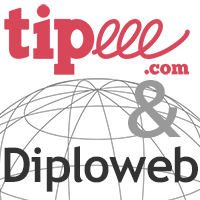What challenges face Obama mid-term ? A European viewpoint
Par , le 29 octobre 2010 


Director of the geopolitics Web site Diploweb.com. Director of research at the Institut des Relations Internationales et Stratégiques (IRIS, Paris) and associate researcher at the Raoul Dandurand Chair of Strategic and Diplomatic Studies (Montreal). Distinguished Professor in geopolitics at GEM. verluise iris-france.org
Europeans will judge B. Obama on his foreign policy performance. There are of course many issues, but three stand out. These are : the way out of the economic crisis, the upshot of conflicts in Afghanistan and Iraq, relations between the US and the EU.
THE ELECTION of Barack Obama to the US presidency on November 4 2008 was broadly perceived in the European Union (EU) as bringing essentially positive perspectives. G. W. Bush’s eight-year tenure at the White House had unquestionably dampened the enthusiasm of diehard pro-Americans, while for the others it merely exacerbated anti-American feeling. In 2003, G.W. Bush had knowingly split the Europeans over Iraq, but in February 2008, he nonetheless mooted the prospect of a transatlantic union that would help develop the EU’s defensive capability ─ if only, perhaps, because, at that time, he was losing his footing in both Afghanistan and Iraq. Whatever the case, the investiture of B. Obama on January 20 2009 produced a generally upbeat response from Europeans, who hoped that an ultimately disappointing page had been turned. Yet, the economic crisis – of US origin – was soon to hit the EU’s member nations, with emotional shock rapidly followed by the distress of unemployment. It is true that since the election of B. Obama, the number of unemployed in the EU has risen by more than five million. Furthermore, the new White House incumbent has repeatedly sent out clear signals that Asia is where his priorities lie. There was also a cold shower for the Europeans at the Copenhagen climate summit in December 2009 : they had been hoping the US would put pen to paper on an ambitious agreement, buying into Europe’s soft power strategy… Washington dropped the EU, preferring to set out its stall with Beijing on a non-restrictive, lowest common denominator agreement.
Notwithstanding these setbacks, economic and strategic relations between the US and the EU are as important as ever. So what are the challenges facing Obama in the second half of his term of office ?
Challenges
Unsurprisingly, Europeans will judge B. Obama on his foreign policy performance. There are of course many issues, but three stand out. Without attempting to classify them by order of importance, these are :
1. The way out of the economic crisis. Born in the USA, the financial crisis rapidly morphed into an economic and then a social one, even becoming political and monetary as alarm bells rang for the euro. Yet, the new administration has been conspicuously unrepentant about the United States’ having largely helped to push a number of countries straight into the wall. Whether or not there are glimmers of a recovery in the US, this will not suffice to appease Europeans, so long as the EU remains in the doldrums. True, the European and EU leaders must assume their responsibility, but the Europeans would certainly appreciate some hands-on commitment from B. Obama, with decisions based on an awareness of past mistakes, and the introduction of good governance measures at both national and planetary levels. Unquestionably, B. Obama took positive action as a number of euro zone nations were caught up in the sovereign debt crisis, though US interests were of course never completely out of sight. The reform of the American financial system on July 21 2010 was a step in the right direction.
2. The upshot of conflicts in Afghanistan and Iraq. While it is common knowledge that B. Obama inherited the “works” of his predecessor, this does not mean that, going forward, Europeans will not judge him by the tangible results of his own decisions. At no time has Afghanistan ever exported such large volumes of narcotics to Europe, helping to bring down prices and contributing to an increasingly wide distribution of these lethal products. Iraq was for a number of years a training ground for terrorists who also carried a threat to Europeans. So what will Iraq actually become after the US and allied troops have pulled out ? This is anybody’s guess. What will be the outcome of Washington-inspired strategies in Afghanistan and what will be the “price of the blood” shed by the European soldiers ? [1] Finally, where is the situation going in Pakistan ? In the first days of October 2010, who in Europe would not admit to concern over the activity of Pakistan-trained terrorists ?
3. Relations between the US and the EU. Right now, there appears to be a sense of disappointment on both sides. Firstly, Europe needs to get its house in order. The admittedly disingenuous noises made by Washington at the start of 2010 expressing “disappointment” with the slow implementation of the Treaty of Lisbon might also provide a spur. After all, the fact that Washington appears to be prioritizing Asia might force the Europeans to get their act together. It has to be said that Europe’s modest defence commitment – with the exception of the UK and France – can only have exasperated a country that sees itself as a vocational planetary custodian. This said, the aggravation of government deficits caused by the economic crisis will hardly be conducive to an increase in defence expenditure by EU member nations. Lastly, if need be, there is no shortage of top-level experts on hand in Washington to explain to the executive that the implementation of the Lisbon Treaty is a complex process that will take some ten years. In the mean time, it is important, notably, to intensify relations between the EU and NATO in a way that would be mutually beneficial.
One thing alone is certain : by 2050, the European Union and the United States will both carry less weight in the world. B. Obama will go down in European history books as a “great American president” if he succeeds in turning a corner and developing a new synergy with the European Union ; and here, of course, it will take two to tango.
Copyright October 2010-Verluise. English translation : Alan Fell.
Pour ne rien rater de nos nouvelles publications, abonnez-vous à la Lettre du Diploweb !
[1] Cf. Pierre Verluise, Les opinions publiques européennes face à la guerre d’Afghanistan, Actualités européennes, IRIS, September 2010.








